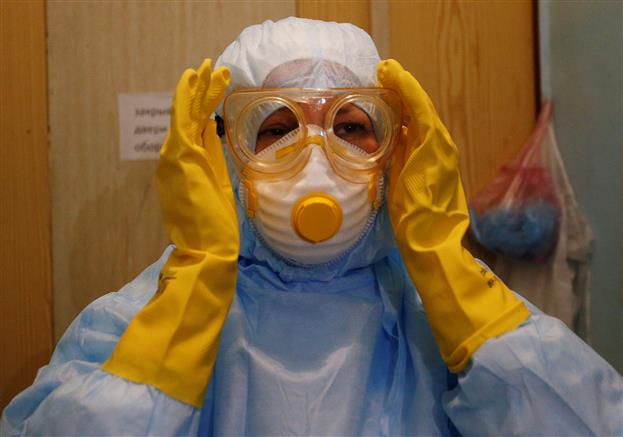
The spike in the number of coronavirus cases has given rise to concerns over the adequacy of the health infrastructure. The World Health Organisation (WHO) estimates the number to reach one million worldwide within days. India, too, has seen an increase in the number of infected persons as well as casualties, fuelling the apprehension that it is the healthcare professionals and frontline workers who will bear the brunt of this surge, the exodus of workers accentuating this worry. At Ram Manohar Lohia Hospital in New Delhi, doctors were in quarantine after exposure to a patient while the death of a Nayagaon patient saw the staff at the PGIMER in Chandigarh being isolated. Nurses and attendants at Rajindra Medical College, Patiala, were up in arms over the lack of personal protective equipment (PPE), understandable with the state reporting a number of Covid-19 cases. It is a concern shared by the medical fraternity not just in India, but elsewhere, too, like in the US and Italy, where a sharp rise in cases has seen the medical staff plead for supplies and PPE.
Protective equipment consists primarily of masks, goggles, gloves and gowns to protect medical workers against infections from blood, body fluid, respiratory secretion and excretion from the patients. The N95 respirators are deemed to be more effective in filtering airborne particles; their shortage in the country is attributed to demand in China and the Middle East. In February, the WHO had warned of a global scarcity of PPE, asking countries to ramp up production, the effect evident in the ban on export by India and the US. The inadequate availability of PPE has forced doctors and others to use raincoats and motorcycle helmets as protective gear. While the US sought supplies from South Korea and Russia, India is seeking it from China and countries in South-East Asia.
The shortage has pushed up the prices of raw material used to make PPE and manufacturing companies from other sectors have offered to make masks, sanitisers and ventilators. The lockdown and the needs of the healthcare sector make the dilemma pronounced.
Join Whatsapp Channel of The Tribune for latest updates.



























